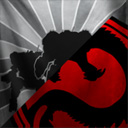 yrrot, on 10 April 2018 - 05:00 PM, said:
yrrot, on 10 April 2018 - 05:00 PM, said:
Random thought: is QP solo building one team at a time? I've seen that mentioned somewhere by other folks here, and it doesn't make sense from an initial development of a solo drop system. It *does* however make a ton of sense if it's the product of splitting out the solo and party queues. Group queue building a 12 man team from random groups (and previously including solo players as fill), then matching two 12 mans seems like what this MM would be doing in the background--especially given legacy implementations/code.
If that's the case, then the "just swap players from one team to another for balance" isn't as simple. It doesn't leverage the legacy code, and requires new developments that likely are risky to the existing MM code.
If that's the case, then the "just swap players from one team to another for balance" isn't as simple. It doesn't leverage the legacy code, and requires new developments that likely are risky to the existing MM code.
To my understanding, that is kinda the explanation I've gotten, which totally makes no sense from a match building standpoint (the idea of building a team on one side before constructing one for the opponents - this is something PGI has said previously at one point in time - either way, this isn't really a group queue viable method). The best way to start is to attempt distributing "equal" skilled players based on criteria and split it on both sides. Trying to construct a team before "finding matches on the opponent's side" amounts to various levels of lunacy because then it can struggle to find a compatible match with someone that is actually good. It causes certain things like "unintentional team stacking" or the opposite "constructing really bad teams off the bat" which if you apply any understanding of the player skill and "guessing" which team is going to win... well, at least you'll have a gig in gambling or predictions.
Edited by Deathlike, 10 April 2018 - 06:31 PM.

























